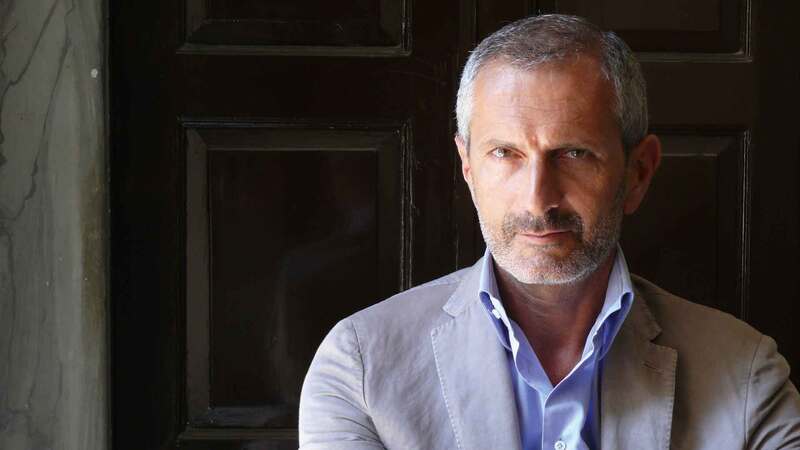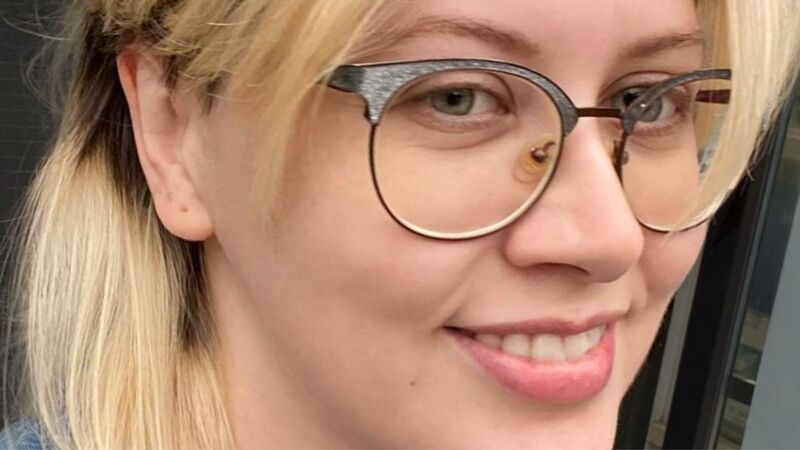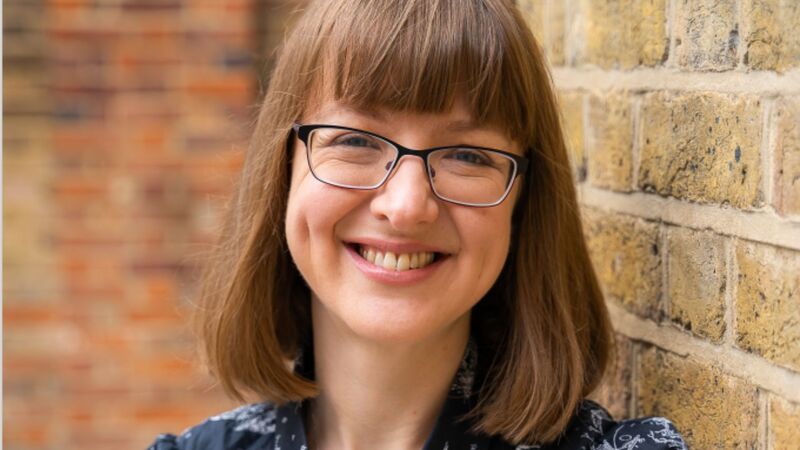You are viewing your 1 free article this month. Login to read more articles.
Katie Green: living with an eating disorder
Katie Green wasn’t lucky enough to enjoy her teenage years. When everybody else was going out, getting boyfriends and deciding what to be when they grew up, Katie spent most of her time in her bedroom, in and out of doctors surgeries and always, always in her head.
From childhood right up until her twenties, Katie suffered from an eating disorder that claimed what should have been the happiest, most carefree time in her life. The disease enveloped her and pulled her headfirst into a dark tunnel that thankfully spat her out alive nearly 15 years later.
But it wasn’t just the disease she had to live with. When she was in her first year at university, Katie was raped by her therapist, sending her into a state of despair so acute it nearly killed her.
Lighter Than My Shadow is Katie’s graphic memoir of her journey, and is a completely absorbing and heartbreaking account of a young girl’s constant battle with her inner demons. Now aged 30, Katie is able to look back on how the disease affected not just her, but her family and friends who tried to be there for her.
The book started as a degree project on Katie’s illustration course at Swindon College, and took almost five years to complete. But when she had the original idea for the book several years earlier, Katie thought she would write it as a memoir: “I abandoned all creativity for several years,” she says, “At that stage I wasn't illustrating; this was when I was unwell, really. So I thought it was going to do a ‘real’ book, as I thought of it then.”
But after discovering graphic novels in her twenties, Katie saw an opportunity to create something different. “It’s such a good medium for talking about this illness,” she says. “People who have eating disorders are people who struggle to communicate their emotions, so to express it without words is a more powerful way of talking to people who are struggling with it.”
Her issues with food started when she was very young. She would push food around her plate, chew everything a certain amount of time and hide leftovers behind her wardrobe – which weren’t discovered until the family moved house months later. Her relationship with food and eating got worse, and dinnertime soon turned into a battle of wills between Katie and her parents. At high school she became withdrawn, obsessing over lunches and trying to eat as little as possible without her friends noticing.
Various doctors diagnosed her with school-related “stress”, and Katie quickly became worse. She enjoyed art and found a release in creativity, but her art teacher told her she “wasn’t very good at it”, and that she should concentrate one more academic subjects.
When Katie met Jake, an alternative therapist, she thought he was the hand she needed to pull her out of her black hole. His methods, which involved her lying down and him “releasing” the energy from various parts of her body, helped at first, to her parents’ disbelief. But as Katie began to rebel against their advice and became closer to Jake and his wife, a camping trip to a music festival ended in him drugging and raping her. Flashbacks to her therapy sessions made her come to the realisation that he had been abusing her all along.
This is the most affecting part of the book: Katie’s illustrations of her spiraling out of control into a nervous breakdown, ending in several blank pages, are hard to read, so it’s impossible to imagine how it must have felt drawing them.
“There was a point when I considered writing a book without that in it completely,” she says. “But having read the whole story, you’ll understand that it would have been impossible for me to write it without including it, because it shaped so much of my recovery in the later years.
“Drawing it was so hard. I had to cover up parts of the page with pieces of paper so I didn’t have to look at them. It was pretty horrible.”
Any notions that Katie might find release in writing down what happened turned out not to be true. “I hoped it would be therapeutic, but I don’t think it was,” she says. “It was just re-traumatising. I think having done it and being able to look back on it was a good thing to have done, and I feel better for having done it. But actually the act of doing it – I don’t think it was cathartic or therapeutic, really.”
And writing the book unfortunately hasn’t had a lifting effect on Katie either: “My initial reason for wanting to do the book was because I had such a hard time talking about this stuff, but I felt like people didn’t really know me unless I did talk about it, like I wasn’t really being myself.
“I wanted to put it all down on paper so that I didn’t have to talk about it, and of course when you do a book people expect you to talk about it, and I think I’ve got more comfortable about that. But it’s not lifted any burden in any way. This stuff for me is as real as it always has been; putting it in a book hasn’t made it go away.”
Katie hopes that if her journey helps just one person in any way, then it will have been worth it – but she is keen to emphasise that it is “not in any way intended to be a self help book or a guide to recovery. It’s a ‘here are all the mistakes I made, I hope you don’t make the same ones’ type story.”
Part of the reason she decided to write the book was because of the lack of literature dealing with eating disorders when she was suffering. “I found that books were either of the really sickly, inspiring kind of ‘you can do it, everything is going to be alright’ – or they were really bleak and would tell you that you’d always be stuck with an eating disorder at the back of your mind for the rest of your life and it would never go away. I didn’t find anything that was really honest and in-between, so I wanted to write an account of just how hard and horrible it was – but that it does get better.”
Lighter Than My Shadow by Katie Green is out now, published by Jonathan Cape. Photo credit: Chris Bertram.













